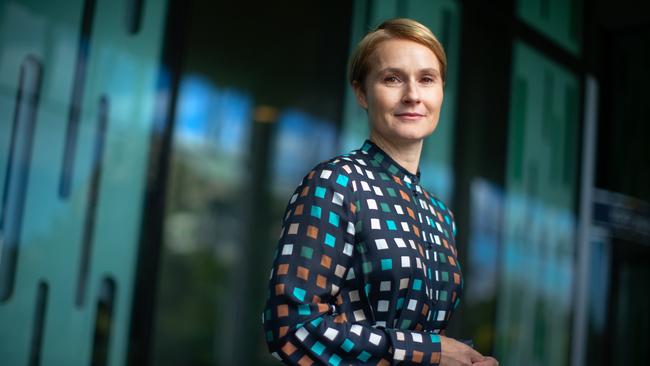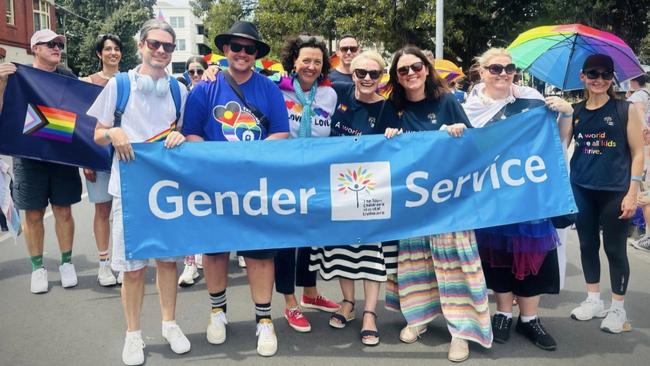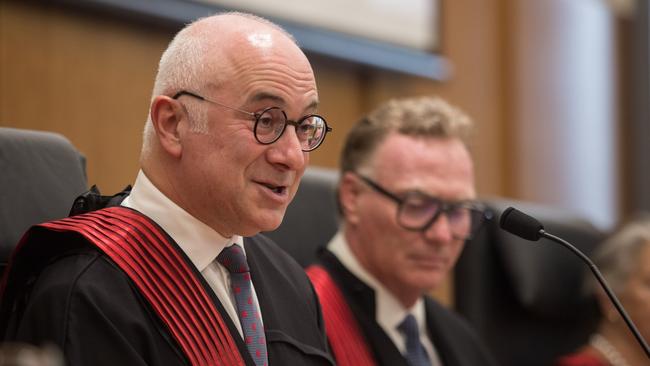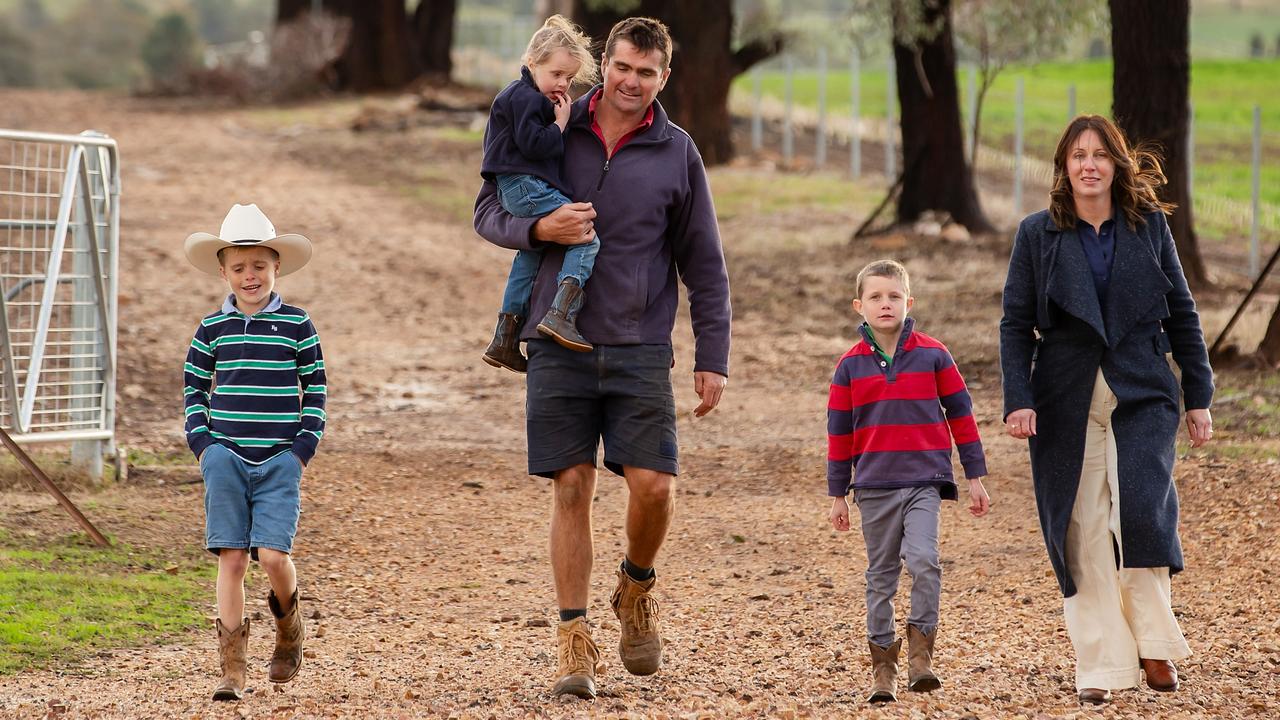Judge critical of Michelle Telfer over gender guidelines, evidence
Judge Andrew Strum has criticised the evidence of gender medicine expert Dr Michelle Telfer and allowed publication of her name and of the Royal Children’s Hospital Melbourne following a landmark case.

Australia’s foremost gender-medicine expert and the lead author of the nation’s guidelines on gender-affirming care, Michelle Telfer, was excoriated by a Family Court judge for giving misleading evidence in support of a mother who wanted her child to be prescribed puberty blockers, in a judgment that has called into question the integrity of treatment of gender-dysphoric children.
Judge Andrew Strum, who stripped the mother of custody and effectively blocked the 12-year-old from accessing treatment, criticised the Royal Children’s Hospital Melbourne for failing to give the child a formal gender dysphoria diagnosis until the court proceedings had commenced, despite having treated the child for six years.
The hospital’s chief of medicine, Professor Telfer, he said, cheapened the suffering of victims of Nazism when she suggested a landmark review that recommended limitations on medication for gender-dysphoric children formed part of a wave of transgender oppression commencing with the Nazis.
Justice Strum also questioned the Australian Standards of Care and Treatment Guidelines for Trans and Gender Diverse Children and Adolescents, authored by Professor Telfer, for not recognising children may not be capable of making life-altering medical decisions about their gender identity.
“It is concerning that an oddly binary approach is adopted in relation to children, especially of the age of the child the subject of these proceedings; that is, to affirm unreservedly those who present with concerns regarding their gender, brooking no questioning thereof,” he wrote in the judgment.
“The case of the mother … is that because the child says so, the child is, and must unquestioningly be affirmed as being, female in gender identity. However, that overlooks the obvious, namely, that the child is still a child and not even, if it matters, a teenager.”

The judgment, published in April, anonymised Professor Telfer as Associate Professor L and did not name the Royal Children’s Hospital due to statutory prohibitions preventing the identification of witnesses in Family Court proceedings. However, The Australian was on Thursday successful in petitioning the court to name Professor Telfer and her place of work, arguing it was in the public interest for the practices of an expert healthcare professional and a pre-eminent medical service to be transparent.
“Nationwide News submits, and I agree, that the interests of the public are best served by members of the public having access to the entire context of Associate Professor L’s opinion or practice, so that it can be properly assessed,” Justice Strum ruled in approving the application. “Such transparency, including as to that expert’s identity, enables individuals to evaluate critically the validity, reliability and implications of that opinion and practice.”
He said maintaining confidentiality over Professor Telfer’s identity “may well undermine public confidence in the administration of justice”.
“In the context of applications for suppression or non-publication orders, it is often acknowledged that the proper functioning of the justice system is strengthened by openness to public and professional scrutiny,” he said.
“Transparency serves as a safeguard against potential misuse of judicial power, ensuring that justice is not only done but seen to be done, and reducing the risk that abuses go unnoticed or unaddressed.”
Justice Strum also agreed with The Australian’s submission that revealing Professor Telfer’s identity would assist parents, caregivers and their children in making informed decisions about their health.
“There is a diversity of views, both within and outside of Australia, as to what is appropriate or best-practice healthcare for transgender or gender diverse children and adolescents, with limited evidence about the long-term effects of some of the healthcare options promoted by Associate Professor L, the Children’s Hospital and its Gender Service,” he said.
He said the evidence of Professor Telfer was an area of “legitimate public comment, public discussion and public inquiry”.
A statement released by the Royal Children’s Hospital Melbourne said its gender service delivered a “world-leading, multi-disciplinary model of care” which supported the mental health and wellbeing of young Australians.
Some experts said Justice Strum’s comments marked the first time someone in high authority had had “the courage to say what is true”, and called on the federal government to better interrogate national frameworks for gender medicine.
While Justice Strum did not offer general comment on the treatment model adopted by RCH, he said the impact of that model on a child was of relevance.
The matter centred on the mother who believed her biologically male child was gender dysphoric, and needed to be prescribed puberty blockers.
However, the child’s father wanted to hold off on treatment and “let the child be the child”. Justice Strum in his judgment sided with the father, who did not wish to “pigeonhole” his child, and decided “all options” in the child’s life should be open.

In his original judgment, Justice Strum took caution with Professor Telfer’s evidence about the Australian Standards of Care and Treatment Guidelines, describing her as “the proverbial judge, jury and executioner”, and saying her opinion that they are “best practice” was “essentially tantamount to her agreeing with herself”.
“Associate Professor L wrote the first draft and approved the final draft of the ASCTG and it is a work of which she said she is proud,” he wrote. “Insofar as Associate Professor L relies upon the ASCTG, describing it as ‘best practice’, and as the ‘most progressive and trans-affirming guidelines’ in Australia, I approach her evidence in this regard with caution, in the circuitous circumstances where she is the lead author thereof. By way of analogy, it might be said to be akin to a judge expressly relying upon an earlier first instance decision of his or hers as authority for a particular proposition.”
He said while they were lauded as the country’s primary standards for treating gender-dysphoric children, they did not have “the approval or imprimatur of the commonwealth or any state or territory government, including any such government minister for, or department of health”.
Justice Strum took issue with the “concerning” evidence given by Professor Telfer in relation to the landmark UK Cass review, which recommended restrictions on medication for children with gender dysphoria.
He said Professor Telfer “disagrees with much” of the Cass review, which “manifestly runs contrary to her life’s work as an ‘advocate’ for the cause in relation to which the Cass Report urges, at least, greater caution”.
“It is submitted by the Independent Children’s Lawyer … and I agree, that Associate Professor L’s responses were ‘misleading or omitted findings/material that detracted from (their) opinion’ contrary to the obligations as an expert witness,” Justice Strum wrote. “Some of the many examples proffered are concerning.”
He also raised concerns over Professor Telfer’s suggestion that “trans people and their families are best placed to know what is in their best interests”.
“One is left to wonder how that is so, given the complexity of the expert medical evidence adduced in this case,” he said. “Further, even if that be so, in circumstances where the parents are in disagreement as to what is in the best interests of their child and turn to the court, it is for the court to so decide, based on the evidence adduced.”
Professor Telfer during hearings likened the Cass review to the victimisation of LGBTIQ+ people by Nazis in the 1930s, and said it formed part of a “third wave of transgender oppression”. Justice Strum said the characterisation had “no place whatsoever in the independent evidence that should be expected of such an expert”.
“It demonstrates ignorance of the true evils of Nazism and cheapens the sufferings – and mass murder – of the millions of the victims thereof, which included, but were most certainly not limited to, transgender people, as well as gay and lesbian people, amongst other groups of people,” he wrote. “I consider there to be no comparison whatsoever.”

Justice Strum was highly critical of a practitioner anonymised as Dr N, whose diagnosis that the child as gender-dysphoric was only made “as the pending trial dates approached” and found the timing of the diagnosis was “more than merely coincidental”.
“Dr N conceded in cross-examination that the time pressure of the court process was one factor in the decision to conduct a diagnostic tool when she did,” Justice Strum ruled. “However, the Independent Children’s Lawyer submits, and I agree that, albeit one factor, it was a major one.
“Without such a diagnosis (or diagnoses), it is nigh inconceivable that the mother could have seriously prosecuted her application in relation to puberty suppression, let alone had any prospect of success. I find that the timing was more than merely coincidental.”
Justice Strum rejected the hospital’s gender dysphoria diagnosis of the child. He said the court was “not concerned ‘in what the community thinks’ or ideologies, but only what, on the evidence, is in the child’s best interests”.
“Ideology has no place in the application by courts of the law, and certainly not in the determination by courts exercising jurisdiction under the (Family Law Act) of what is in a child’s best interests,” he wrote.
A statement released by the Royal Children’s Hospital said the hospital was “proud to lead a gender service that delivers a world-leading, multi-disciplinary model of care with a strong emphasis on supporting the mental health and wellbeing of the children and young people referred to our service”.
“Our gender service is underpinned by both national and international research methodology. Over the last 150 years, the RCH has been committed to centring our care around the best interest of every child we support,” the statement read. “This commitment remains today.”
A Victorian government spokesperson described the hospital as a “world-class health service whose clinical decisions – backed by a comprehensive multidisciplinary model of care – are rightfully made by doctors, not politicians”.
“Our gender clinics offer some of the most vulnerable Victorians the lifesaving care they need, and we are proud to support them,” the government spokesperson said. “We know that trans and gender diverse people face significant challenges along the journey of affirming their gender identity, especially when this is met with stigma, misunderstanding and deliberate misinformation campaigns.”
Health Minister Mark Butler earlier this year asked the National Health and Medical Research Council to undertake a comprehensive review of the Australian Standards of Care and Treatment Guidelines and to develop a new national framework.
When Justice Strum’s ruling was originally handed down in early April, Mr Butler said he had been “thinking quite a lot” about the issue, and would await the outcome of the NHMRC review which is due to hand down an interim report in mid-2026. His office did not wish to comment when contacted on Thursday.
James Cook University academic and psychiatrist Andrew Amos said he expected the review to find “there is no good evidentiary basis for providing puberty blockers, hormone treatments, and certainly not surgeries for gender confused kids”.
“I would expect that they would recommend that those treatments not be offered in Australia in the same way that they’re being rolled back across the rest of the world,” he said.
Psychiatrist Catherine Llewellyn said a national commitment was required to monitor outcomes in gender dysphoric children, because currently “we really don’t know the medium and long-term effects of what we’re doing”.
“Justice Strum’s judgment was, from my perspective, it’s my personal view, was the first time that somebody really examined the evidentiary basis that was being provided rather than relying simply on testimony provided in court,” she said.
“I think that that was profoundly important. We need to be able to have a measured, respectful discussion between professionals and with health policy makers around the intense complexity associated with the situation for children. They are extraordinarily vulnerable.”
Former Queensland Children’s Hospital senior staff psychiatrist Jillian Spencer said the only way the NHRMC could return a review supporting current guidelines was “ if they’ve been captured by the gender activists”.
“We’ve had the valuing of lived experience of adults who have transitioned as adults dictating the care of very troubled and traumatised children,” she said. “We need to return to a scientific basis to our guidelines.”




